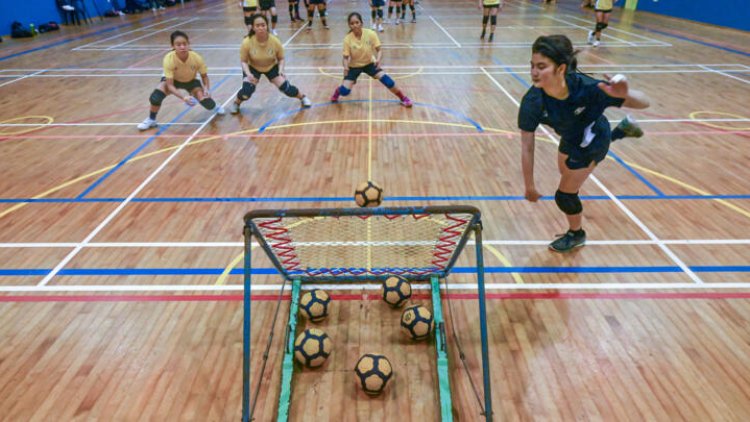Singapore masters 'forbidden zone' to rule tchoukball

After a series of rapid passes and powerful jumps, Irene Tan slams the ball into a trampoline-like "rebounder" to score a point.
Singapore has only ever produced a few world champions, but the city-state is ranked number one in women's tchoukball -- a little-known sport similar to handball.
The indoor sport was invented in the 1970s by Swiss biologist Hermann Brandt.
He wanted to develop a team game that can be played by people of different shapes and sizes, while also reducing the risk of injury.
Named after the sound of the ball hitting the rebounder, tchoukball is played by two teams of seven players who are allowed to score at either end of the court.
Physical contact between players is banned and they are not allowed to intercept the ball while it is being passed.
To score a point the ball must bounce off the one-metre square rebounder and land outside a three-metre semi-circular D-shaped "forbidden zone" without being caught by the other team.
The game has gained popularity in Singapore over the past decade, with dozens of schools playing it.
The national women's side have had to overcome adversity to reach the top, including a lack of official support, which means paying for their own flights, hotels and equipment.
Singapore's women rose to the top of the international rankings after beating long-time number one Taiwan at last year's Asia-Pacific championships in Malaysia.
At August's world championships in Prague they will probably have to again topple Taiwan, who have won all nine world championships played to date.















